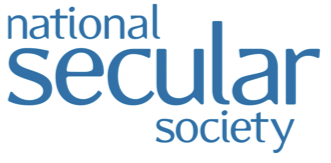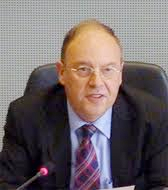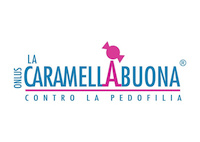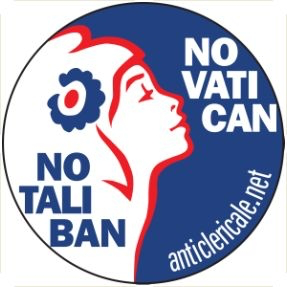 The UK National Secular Society has submitted a 50 page report to the Social Rights Committee of the Council of Europe severely critical of the Irish government’s subservience to the Catholic Church over many decades in respect of child abuse.
The UK National Secular Society has submitted a 50 page report to the Social Rights Committee of the Council of Europe severely critical of the Irish government’s subservience to the Catholic Church over many decades in respect of child abuse.
The report was prepared by the NSS’s Executive Director, Keith Porteous Wood, who commented: “The very first lines of the Irish constitution read: In the Name of the Most Holy Trinity, from Whom is all authority and to Whom, as our final end, all actions both of men and States must be referred.These preliminary words are the very antithesis of secularism. I argue that this complete absence of secularism was the principal factor resulting in Ireland having the highest per capita incidence of clerical child abuse yet discovered.”
Some argue that the Church’s power rose significantly when it moved to fill the vacuum of power when the British left a century ago. But, whatever the cause – physical, psychological and sexual abuse of children in state funded institutions run by the Church went largely unchecked by the Government for decades. Further evidence of that culture was the deal the Church managed to negotiate – presumably with a fifth column within the Government – that 90% of the 1.4 billion euro cost of the abuse compensation came from public funds. Only recently, after a huge hue and cry, has this been renegotiated (with the Church dragging and screaming, of course) down to a 50% share. But will the new deal be honoured; a high proportion of money due by the Church, even on the original deal, remains to be paid to the cash strapped state? There have been suggestions that the Vatican should pay most this. We only know of the Vatican receiving money, and in huge amounts, but never paying it back.
 Mr Porteous Wood added: “Compiling accusations against the Vatican/‘Holy See’ for the UN over child abuse, for IHEU, was hampered by a dearth of objective evidence about problems in most countries, mainly because of Vatican-imposed secrecy. In Ireland, though, the problem is the reverse: there is so much information that most of it is missed, and key information is emerging practically every week.”
Mr Porteous Wood added: “Compiling accusations against the Vatican/‘Holy See’ for the UN over child abuse, for IHEU, was hampered by a dearth of objective evidence about problems in most countries, mainly because of Vatican-imposed secrecy. In Ireland, though, the problem is the reverse: there is so much information that most of it is missed, and key information is emerging practically every week.”
The report gives extracts of this key evidence in a form that can be readily assimilated, but it is not only a passive précis of this mountain of material. We have provided conclusions and recommendations too, aimed at international organisations responsible for oversight of these areas.
That so much material could be written and all painting broadly the same picture, leaves no one in doubt as to its veracity. The sexual abuse was horrific and on a large scale, but the scale of other forms of abuse was far greater still. Many victims’ lives and those of their families were ruined. An example of the deference to clerics that was so damaging, was evidence that complaints to the police were being referred to bishops. Also shocking was the longevity of the cover up; the first report expressing concerns in this area was in 1970. We shall soon be publishing it on the web.
The shameful Magdalen Laundries atrocity forms part of this disgraceful litany, with young people incarcerated in these forced labour institutions. The Church received money from the state for some inmates’ upkeep, while charging customers for the product of their labour, for which they paid nothing. Far worse was that inmates’ names were stolen from them at the time that they entered the institution and many died without even a death certificate being issued, and were buried in mass (the Church insists, “communal”) graves. The end of the Magdalen laundries, as recently as 1996, closely followed the discovery of these mass graves. The UN has recently decided that these laundries even breached the UN torture convention. One of the conclusions we have brought to the attention of the UN and the Council of Europe is that Ireland has broken many Articles (we believe six) of the UN Convention on the Rights of the Child, and on an industrial scale.
The depths to which the Church stooped is pretty well without limit, as exemplified by reports of the former Bishop Magee of Cloyne, who seems almost incapable of telling the truth, even now, about his role over child abuse. What qualified Magee to be the only person to be private secretary to it is three popes, we can only speculate. The many reports into abuse in Ireland produced abundant evidence of abuse on an unimaginable scale, but also of continuing obstruction by the Church, from individual priests to the very top of the hierarchy. Whoever tells the papal Nuncio to Ireland what to do (is there a clue in the title?), told him not to give evidence to these enquiries. In UN and international law speak, this looks very much like “command and control” from the Vatican.
Keith Porteous Wood concluded: “I looked hard in the months during which I wrote this report for evidence of any real change of heart by the Church as an institution. I found none; all that came from the Church was empty rhetoric and its principal preoccupation remains to limit the extent of self-inflicted damage on itself. The Church continues to fight every legal case tooth and nail, minimise victim compensation, protect its priests and religious. It continues to keep child abuse suspicions and files (whether in Ireland or Rome) concealed from secular authorities. And it should be borne in mind that the Vatican’s alter ego, the Holy See, voluntarily signed up to the UN Convention of the Rights of the Child. I have told the UN Human Rights Council in plenary session that the Holy See has broken six Articles of that Convention.”
Having said that, many in the Church have not been involved in this wrong doing and some must have courageously tried to stop this rot, and possibly paid the price. It would be graceless not to single out for praise the Archbishop of Dublin, Diarmuid Martin, for facing up to the problem far more than any other senior cleric, and unsurprisingly he is now regarded as a pariah in some circles. It was Martin who publicly rebuked Vincent Nichols, as he was being installed as Archbishop of Westminster, for sympathising with clerics for having to come to terms with their past when the Ryan Report was published.
It is debatable which is the biggest scandal: the abuse itself; the Church – self-styled moral leader that it is – facilitating knowingly the prolongation of the abuse, while covering it up and further abusing victims by denying the truth; or the complete failure of the government to control the Church’s wholesale abuse.
Our report breaks new ground by drawing attention to recent submissions by the Irish Government to international organisations to which Ireland has treaty obligations over child welfare. These submissions are evasive to the point of being misleading. References to child abuse fail to mention institutional (as opposed to domestic) abuse, far less name the Catholic Church, the major offender by far in Ireland. Many promises of action by the Government made in the wake of revelations in order to stem fierce criticism have turned out to be empty. The Government actually turned down a UN recommendation to make reporting of child abuse accusations mandatory; presumably the Church or its supporters didn’t feel comfortable with this and had the power to persuade the government not to comply.
The magnificent speech of the Irish Prime Minister Enda Kelly on 20 July 2011 hopefully signals a change of heart at the top of Irish politics, albeit very belatedly. In this speech, the Prime Minister expressed Ireland’s “complete rejection and abhorrence” of the “actions and attitude” of the Holy See. Kenny was at pains to make clear that such views were not a “secular elite” plot, but that “most of the strongest views I have heard come from people who have great faith in the spiritual teachings of the Church”. He insisted on complete co-operation by the Church with all investigations, something yet to be seen. He made clear his outrage at the instruction, which has only recently come to light, of the Nuncio to the Irish bishops in effect seeking to interfere in the domestic affairs of another state. It had sought to countermand the bishops’ instruction to dioceses to automatically report child abuse to the secular authorities. The text of that instruction has been in our report since the very first draft.
As a result of the PM’s speech, an incandescent Vatican withdrew the papal Nuncio to Rome. It was intended as a rebuke, but served to tell the world of their inability to comprehend their collective guilt that is so obvious to everyone else. There was one sensible reason to withdraw the nuncio, though: to save him the embarrassment of being expelled, which some MPs had called for.
We have also sent a copy of the report to the Irish Justice Minister, congratulating Prime Minister Kelly on his speech, but noting that it does not invalidate anything in our report. There has been a long and unpardonable history of unfulfilled promises by Irish politicians in respect of child abuse. Let us hope that the Prime Minister’s speech of unprecedented candour and political courage does indeed mark the start of a new era. We hope the conclusions we have drawn and the recommendations that we have made will help him in his massive task.
To read the full report: briefing-for-examination-of-ireland-july-2011








